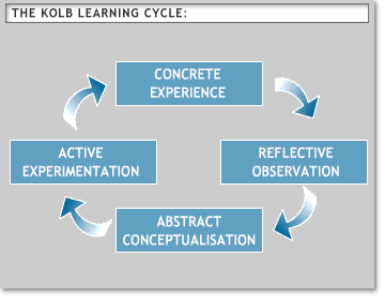Introduction
Consider a training intervention that you are familiar with and critically evaluate how its design, implementation, and evaluation have been influenced by contextual, organizational, and theoretical factors. Learning and development are considered essential for all individuals since, through them, numerous skills and abilities can be acquired. In the present scenario, firms have been organizing diverse training sessions so that people's abilities can be developed. In such a context, the example of UCL (University College London) has been taken into account, which gives organizational and staff development training for personal and professional development. While organizing training for the staff members, UCL emphasizes the CPD approach, which is also a planned process where several things are included related to the learning and development of staff members (Thorpe and Clifford, 2007). The CPD context states that there should be continuous improvement in quality aspects by looking forward to knowledge enhancement and learning facets. While organizing learning and development sessions, UCL assumes that people will gradually learn things because of psychological differences. The main focus has been on increasing the learning level of staff members by including diverse tools and techniques. To impart training, the trainers and organizational members need to consider organizational and ethical factors so that training can produce appropriate results (Lyons, 2010). Training is always organized after identifying its need in the subsequent area, and according to the requirement, a relative method can be applied for imparting training.

While organizing training sessions, the manager always ascertains why it is required, and according to that, people are provided training. The proper procedure needs to be followed so that everything can be included in the schedule (Fleetwood and Hesketh, 2010). Hence, it can be said that the training schedule of UCL directly emphasizes employee development and learning; therefore, for such aspects, adequate concern is given to all essential facets of employee learning and development. Training sessions are designed for every department and all the areas of concern, and this also enhances the capability and efficacy of employees in different aspects. When people try to learn different things, they should be more focused on all the learning approaches so that continuous development may take place. At UCL, learning and training sessions are organized so that employees can develop their capabilities, and this is also required in terms of enhancing their efficiency in managing diversified job roles. At the time of attending training sessions, human resources assesses their current skills, and on that basis, they ascertain the areas where improvements and developments are required (Buckley and Ple, 2009). They also define expected learning outcomes, and according to that, different learning activities can be conducted.
All the outcomes should be based on self-reflection, and individuals should conduct a self-analysis on that basis so that the areas for improvement can be identified. Training should be continuously conducted, and that should be applied to work practice so that positive impacts can be acquired. Afterward, after completing the training session, individuals have to assess its impacts so that they can be carried forward for other practices (Lee, 2010). Hence, it can be said that the learning of an individual goes through a cycle so that development can take place across domains. Any learning activity should be evaluated in terms of its impacts because this is the only source through which ability levels can be acquired. One of the most important tools for evaluating the beneficial aspects of training is to. Donald Kirkpatrick has four different levels and can change the learning and development aspects of individuals. People at the initial stage react to the training event, and after that, they start learning different things as required (Continuing Personal and Professional Development at UCL, 2015). Learning helps people meet all their future and determined objectives, and through that, they should conduct all their activities. People must learn different things on the job to reach optimum and desired outcomes. This is also essential in terms of improving cost aspects.
To get more details about online assignments help connect with us.
At UCL, training sessions are organized based on areas of requirement, and chiefly, they are provided to the employees so that they can contribute to organizational growth and prosperity. As per the theoretical aspects of Piagetian theory, an individual goes through different stages starting from birth to adulthood, and in all such stages, he learns different things that change his life (Willis, 2011). Similarly, this can be applied in an individual's own life, in which, at the initial stage of learning, most of the things are not properly known; thus, according to time, people try to learn more as per comprehensive ability. Hence, regarding this, when organizational managers organize training sessions, they do not expect outcomes at the initial stage because they know people gradually learn things. Managers should not expect more because sometimes individuals resist attending training sessions; therefore, all the sessions and events are organized based on long-term objectives. This allows employees to conduct all the job roles appropriately as per the efficacy level (Zviran et. al., 2011). While organizing any event, managers ensure that resources are properly implemented and that they are producing optimum outcomes for the employees.
Training can be provided through different methods, such as on-the-job and off-the-job methods, and both types are effective in terms of enhancing the capabilities of employees (Pike, 2003). Managers of UCL evaluate training sessions because they desire to acknowledge the efficacy of managerial efforts in organizational practices. To evaluate the effectiveness of training sessions, managers at UCL conduct direct observation so that all the practices can be monitored and, according to the same, changes can be made to the subsequent training event. Further, feedback is also acquired from the trainers and trainees concerning the particular event; thus, this is one of the effective methods through which the efficacy of a training event can be found. Apart from this, an individual's capability and potential can be identified afterward when they acquire training on diverse grounds (Thorpe and Clifford, 2007). An analysis can also be made regarding the knowledge and skill development of the employee; hence, according to the same, new action plans can be formulated. At the end of every program, the manager of UCL accesses all the reports from the learners.
Peer advice and opinion is another technique through which training events can be evaluated, and the method is usually adopted because peers have direct ideas regarding the performance and efficiency of subordinates. Thus, it can be said that direct observation, peer advice, and expert opinion are some of the essential methods through which the capability of a training event can be identified (Buckley and Ple, 2009). UCL also facilitates direct and continuous monitoring because, through that, the university analyses the areas for improvement. The efficiency of a training event can be identified by ascertaining the skills and efficacy of employees. Managers always organize training events at UCL to enhance the level of learning among the employees. This is another strategy for talent development; however, people do resist attending training events because of the comfort zone they have with the existing work processes (Continuing Personal and Professional Development at UCL). Along with this, they also have a sense of insecurity, in which they resist themselves from adopting new and different things. This is vital in terms of improving the learning abilities and standards of the employees. Contingency plans are always formulated at UCL, where managers manage training for those who sometimes skip it.
Training methods should be adequately used as per the areas so that overall growth can be facilitated among the efficiency of the employees (Fante, 2008). The most influential aspect that affects the training program is the unavailability of proper support from the employees during the sessions. Managers of UCL have to make arrangements for diverse resources so that all practices can be adequately managed. To assess the efficacy of training sessions, managers and leaders of UCL have to get opinions from experts and leaders so that accordingly, changes can be made. Organizational factors also affect the training events of the organization, and they also change the way plans are formulated for employee development (5 EVALUATION METHODS TO EVALUATE STAFF TRAINING RESULTS, 2015). Thus, at the time of designing a training event, the manager of UCL must ascertain the availability of all the resources so that they can be used as per the utilities. While organizing the training event, the managers need to evaluate everything so that generalized issues and constraints can be solved (Fleetwood and Hesketh, 2010). However, on the other hand, evaluation methods sometimes give vague responses; thus, they cannot be relied upon all the time. Hence, in such a respect, it is evident that direct observation is an adequate method for everlasting training programs.
It is requisite for all employees and managers to consider diversity and ethical aspects so that issues prevailing among the employees can be reduced. At the same time, people must have a clear idea regarding diversity management in the workplace, and they should learn different aspects of managing people's diversity (Freeman and Ceriello, 2011). Diversified employees should be recruited so that new and innovative things can be adopted because that makes the work processes more comprehensive and effective. Ethical and diversity issues are most commonly prevailing in organizations and to reduce the same issue, people need to treat all the employees in an equal manner so that mutual respect can be maintained for all the organizational members. Hence, while imparting training, the organizational members need to generate awareness among the public regarding ethical issues and diversity management. UCL has numerous students who are from different cultural and social backgrounds; thus, the management needs to treat all the staff members and students adequately (GIBB, 2007). Having an emphasis on cultural and social values assists people in promoting a concern for diversity management, and through this, staff members can be retained for a longer period.
Explore Our Free Academic Tools
Thus, for that purpose, the training session should include awareness of ethical and social responsibilities for the people. This is also significant in terms of reducing issues related to diversity and ethical aspects. People should be informed about different aspects through which they can maintain diversity in the organization (Jim and Clare, 2011). Under diversity management, employees must learn different languages so that communication gaps and barriers can be reduced. At the same time, it will also assist the employees in developing multiple skills; thus, they will be able to manage their competency ratio prominently. Thus, training should be organized regarding different languages and ways of communicating. Proper scheduling is required at this stage, and every aspect should be clearly defined from the start to the winding-up stages. Thus, training related to diversity management and ethical aspects should be organized at UCL for growth and development. This will also enhance the level of coordination among the employees, and as a result, team-building aspects can be facilitated at the university (Köksal, 2006). Apart from this, training sessions should also focus on the maintenance of legal and regulatory aspects, which are typically mandatory in work processes.
At UCL, staff training and development events are organized regularly so that the capability and efficacy of the staff members can be accelerated. Further, this also aids them in avoiding discrimination among the students, and as a result, the organizational environment improves. Hence, from the discussion, it is evident that learning and development sessions are imperative for employees of UCL because they guide them to deal with all the relative issues (Lee, 2010). People learn things continuously, especially during times when they are delegated multiple duties and roles. Supporting the theoretical content, it can be said that learning and development both help employees adequately manage organizational dimensions. Though they learn things gradually, they also undergo development to improve their talents. While implementing the training plan, UCL makes arrangements for all the resources so that the purpose of training can be fulfilled (Lyons, 2010). During the period of executing any event, the management needs to clarify the roles and duties so that the event can be adequately executed. It is apparent that learning and development sessions enhance the personalities of employees; therefore, regularly, such sessions should be organized. Further, organizational policies and strategies are considered as those facets that affect the implementation of training sessions.
Also, you can get our coursework help for getting into your dream university and kickstart your future endeavors.
From the organizational analysis, it has been identified that training sessions at UCL are highly integrated with theoretical aspects, where proper time has been allotted to every activity (Pike, 2003). The theoretical framework says that there should be a proper gap among all the schedules so that the respective participants may not get bored. Thus, in this respect, training for the employees has been organized properly so that employees may not feel bored. The scope of boredom is not present in any of the sessions because proper gaps are maintained after every session. For instance, after every two hours, a refreshment break is provided for the trainees where they can freshen up their minds as required (Thorpe and Clifford, 2007). Similarly, this also helps them to attend the session regularly because activities change in every schedule. Further, activities for entertainment are also organized in between the sessions so that participants can interact with each other. This will help them generate team management when they get the opportunity to work as per the action plan formulated. Moreover, as per the theoretical aspects, the manager must consider the psychology of people during the learning process (Timofeevich and Zhong, 2006).
Thus, based on the entire discussion, it can be said that training sessions should always be organized after comprehending the nature and interests of employees, and on that basis, activities should be classified. All the facilities should be there for the participants so that they can attend the session regularly. In this respect, adequate allocation of resources is required. People tend to think that learning and development sessions accelerate their efficacy level; therefore, this is the main reason they attend training; hence, all learning facets should be included while organizing any learning event (Willis, 2011). As per the present case, training events are required to be evaluated so that areas of development and improvement can be identified for future aspects. All the organizational members should participate in organizing training sessions so that they can give their suggestions for making the training more effective and beneficial for staff members. In such respect, according to theoretical aspects, UCL seems to evaluate the efficiency of all the training and learning sessions by acquiring feedback from the leaders and trainees. These are those people who have attended the session and who can give responses regarding the efficacy of the training event (Zviran et. al., 2011).
In such a context, David Kolb's learning styles can be taken into account, as that can enhance the learning capability of the targeted learners. The model sets out four distinct learning styles, which are based on a four-stage learning cycle. As per the model, learning is considered the process whereby knowledge is created through transforming experience. According to the views of Kolb, knowledge results from the combination of grasping experience and transforming it. All the dimensions are discussed in the below section:

Concrete Experience
Here, learners can learn things from specific experiences by relating them to people; hence, learners can be regarded as sensitive to others' feelings. The chief focus is given to the feelings of others.
Reflective Observation
As per the style, learners observe things prevailing in the environment from different perspectives (Thorpe and Clifford, 2007). Moreover, they focus chiefly on the meaning of things so that knowledge can be implemented into practical work processes.
Abstract Conceptualization
Learners here logically analyze diverse things to challenge their analytical thinking. Hence, learners emphasize new ideas, and they act on their intellectual understanding of the situation (Lyons, 2010).
Active Experimentation
The learner here develops the ability to get things done by influencing people. This is considered a risk-taking approach because several dimensions are not known while applying things to action.
References
- 5 EVALUATION METHODS TO EVALUATE STAFF TRAINING RESULTS, 2015. [Pdf]. Available through: https://www.liveseysolar.com/5-ways-to-evaluate-staff-training-results/. [Accessed on March 1, 2016]
- BUCKLEY, R., and CAPLE, J., 2009. The theory and practice of training, 6th ed., London: Kogan Page.
- Continuing Personal and Professional Development at UCL. [Pdf]. Available through: <http://www.ucl.ac.uk/hr/od/resources/continuing_prof_dev_guide.pdf>. [Accessed on March 1, 2016] .
- Fante, R. M., 2008. A Comparison of Three Training Methods for the Acquisition and Retention of Automotive Product Knowledge. ProQuest.
- Fleetwood, S., and Hesketh, A., 2010. Explaining the Performance of Human Resource Management. Cambridge University Press.
- Freeman, C., and Ceriello, V. R., 2011. Human resource management systems: strategies, tactics, and techniques. 2nd ed., Jossey-Bass Publishers.
- GIBB, S., 2007. Human resource development: processes, practices, and perspectives. 2nd ed. Basingstoke: Palgrave MacMillan.
- Jim, S., and Clare, R., 2011. Learning and Talent Development (CIPD) Köksal, M. H., 2006. Export training: a preliminary investigation of Turkish companies. European Business Review, 18(5), pp. pp.382 - 394.
- Lee, B., 2010. Jump Rope Training, 2nd ed., Human Kinetics.
- Lyons, P. (2010. Scenistic methods in training: definitions and theory grounding. Journal of European Industrial Training, 34(5), pp. pp.416 - 431.
- Pike, R. W., 2003. Creative Training Techniques Handbook: Tips, Tactics, and How-to's for Delivering Effective Training. 3rd ed., Human Resource Development.


 Company
Company













